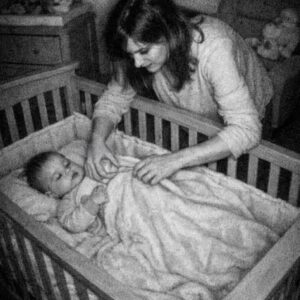Living with my son Andrew and his sharp-tongued wife Kate was not the peaceful retirement I’d imagined. My mildly exaggerated leg injury had secured me a spot in their home, but Kate’s forced politeness was wearing thin. She snapped when I offered advice on raking leaves, questioned my pain, and practically banished me from the kitchen. Even the pie she served for dinner was undercooked—though pointing that out didn’t win me any points.
One day, she shocked me by suggesting I bring a pie to our grouchy neighbor, Mr. Davis. “He’s not so bad,” she said slyly. “I think he likes you.” Ridiculous, I thought—until he showed up the next morning and awkwardly invited me to dinner. Out of curiosity (and perhaps boredom), I accepted. That evening, something shifted between us. When I mentioned my love for jazz, he softened. We danced without music, just humming and laughing. It was… unexpectedly lovely.
Peter, as I came to know him, became the highlight of my days. We shared meals, stories, and quiet moments that filled the lonely corners of my heart. On Thanksgiving, I invited him to dinner. But I overheard him thanking Kate for a record player she had arranged as a surprise—and my heart sank. I stormed into the kitchen, demanding to know if our budding romance was just a setup. The truth? It was. But it wasn’t cruel—it was hopeful.
Andrew and Kate had conspired to bring us together, believing we both needed someone. Peter stepped in gently and confessed he had truly fallen for me, not out of obligation, but because I made him feel alive again. I wasn’t ready to forgive so easily—until he said, “Because I love you. All of you—bossy, meticulous, and caring.” I softened. “Fine,” I said, “but the record player stays with us.” From then on, every Thanksgiving became a celebration of music, mischief, and the unexpected love that grew between a stubborn widow and a reformed grouch.





